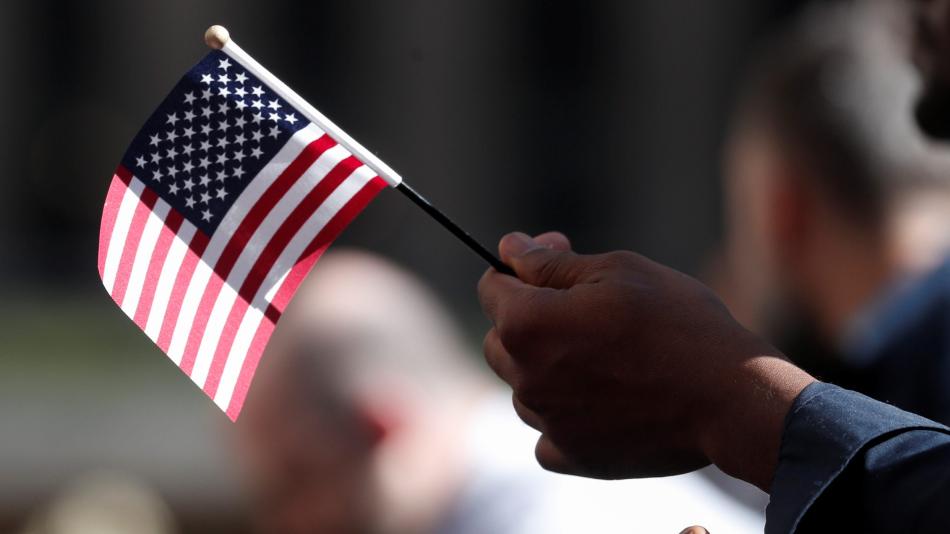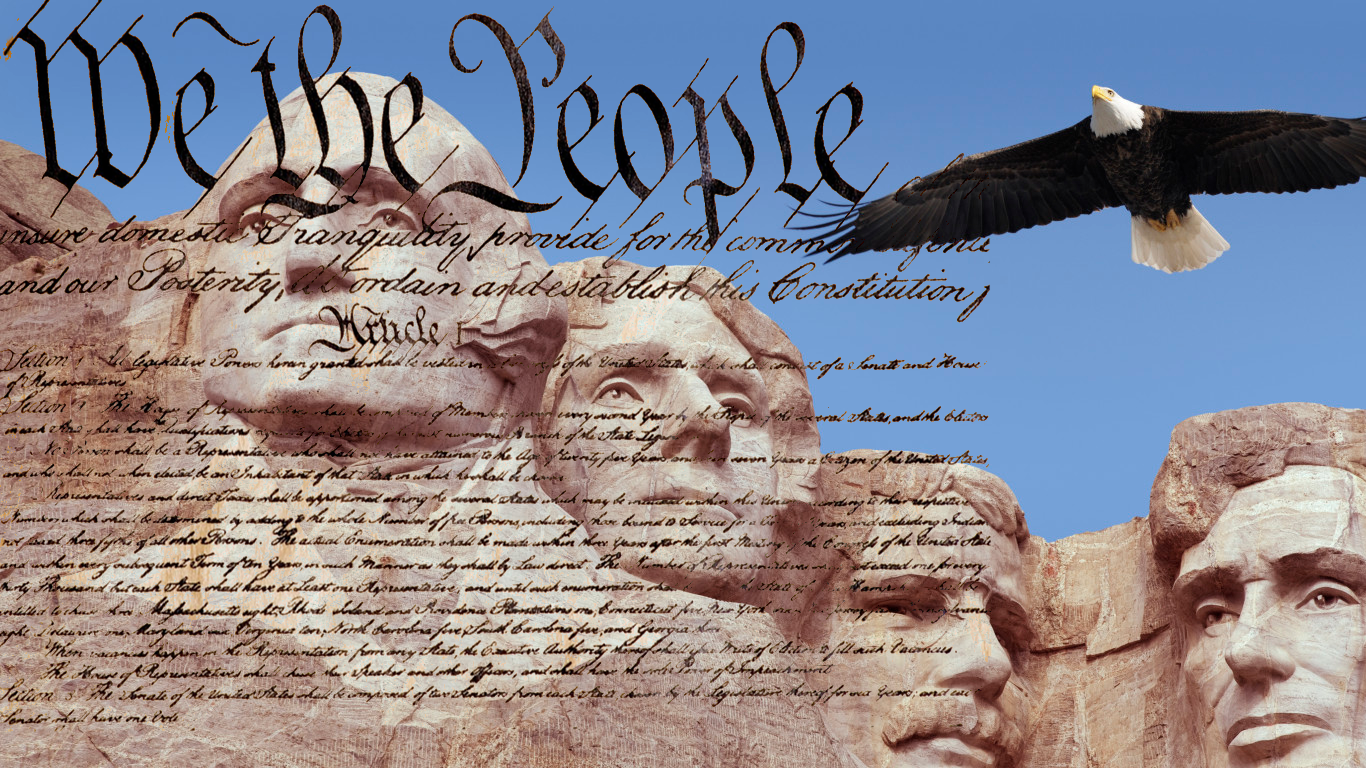%excerpt%
USCIS
USCIS Holds Drive-Thru Naturalization Ceremonies to Work Through COVID-19 Backlog

U.S. Citizenship and Immigration Services expects, by the end of July, to have worked through nearly the entire backlog of naturalization oath ceremonies put on hold in response to the COVID-19 pandemic. The agency is now providing new ways to take the oath, including drive-thru naturalization ceremonies. The cancellation of oath ceremonies had prevented 120,000,
U.S. Citizenship and Immigration Services expects, by the end of July, to have worked through nearly the entire backlog of naturalization oath ceremonies put on hold in response to the COVID-19 pandemic. The agency is now providing new ways to take the oath, including drive-thru naturalization ceremonies.
The cancellation of oath ceremonies had prevented 120,000 immigrants from becoming U.S. citizens. Each person had fulfilled all the requirements for U.S. citizenship except the taking of the oath. This, in turn, prevented them thus far from registering to vote in the November elections.
USCIS closed its offices to the public from March 18 to June 4 in response to the pandemic. Initially, the agency offered no alternatives to the traditional oath ceremonies, which are normally held in a packed courtroom or auditorium.
On June 10, two immigrants’ rights groups filed a lawsuit on behalf of prospective new citizens in the Philadelphia area. The organizations asked the court to provide their plaintiffs “with the ability to immediately take the oath.”
Since reopening public offices on June 4, the agency has started rescheduling those ceremonies while observing social-distancing protocols. In California and Michigan, for instance, oath ceremonies are being held on a drive-thru basis. Federal judges administer the oath to new citizens who remain in their cars.
On July 1, USCIS announced that it “has naturalized approximately 64,500 new citizens over the past month and anticipates completing nearly all postponed administrative naturalization ceremonies by the end of July.”
However, this timeline could be disrupted if the agency follows through on plans to furlough roughly two-thirds of its workforce in response to a funding crisis. USCIS is asking Congress for an infusion of $1.2 billion in emergency funding to compensate for a budget shortfall it claims is due to the pandemic.
The agency receives most of its funds through the fees people pay for immigration benefits and has said that its funding dried up when USCIS offices were closed to the public.
Without the emergency funding, the agency says it will have no choice but to furlough most of its employees, and over 13,000 USCIS employees have already received furlough notices. This will cripple its ability to process immigration benefit applications and administer naturalization oath ceremonies.
In America, you can get almost anything in a drive-thru. Because of the pandemic, immigrants who have completed all the requirements of citizenship are pulling into parking lots for socially-distant naturalization ceremonies. @SteveHartmanCBS reports. https://t.co/cvPRlZ6OqG pic.twitter.com/2RfB5xOKWh
— CBS Sunday Morning
(@CBSSunday) July 5, 2020
It is important to note, however, that USCIS has a long history of fiscal mismanagement which precedes the current pandemic. COVID-19 is not the only cause of the funding shortfall that the agency is now experiencing.
If USCIS furloughs the bulk of its workforce, oath ceremonies would come to a near standstill again. Potentially tens of thousands of people who should have been able to vote in the November elections will most likely be unable to do so. Given that these individuals have already fulfilled all the requirements to become U.S. citizens, this would be a travesty—particularly given the historic stakes of this election.
Source: USCIS Holds Drive-Thru Naturalization Ceremonies to Work Through COVID-19 Backlog
YouTube:
, 

BREAKING
USCIS plans to increase immigration processing fees

According to this article on The Dallas Morning News, by María Ramos Pacheco
“U.S. Citizenship and Immigration Services (USCIS) plans to increase its fees for several immigration processes.
Last week, USCIS announced via the Federal Register the proposed new fees starting in March 2023. All fee adjustment plans must be subject to a 60-day analysis and community input period.
This adjustment will be the first in almost seven years. In August 2020, USCIS proposed fee increases on some categories, but a northern California federal court stopped the plan. The last time fees went up was in December 2016.”
BREAKING
DHS to Release Additional 35,000 H-2B Visas

According to this article on SHRM, by Roy Maurer
“The Department of Homeland Security (DHS) announced an additional 35,000 H-2B visas will be made available for U.S. employers seeking seasonal foreign guest workers this spring and summer.
The additional visas will be set aside for those starting work between April 1 and Sept. 30.
Of the 35,000 visas, 23,500 will be available to returning H-2B workers and 11,500 will be reserved for nationals of El Salvador, Guatemala, Haiti and Honduras, regardless of whether they are H-2B returning workers. Returning workers are those who received an H-2B visa, or were otherwise granted H-2B status, during one of the last three fiscal years.”
BREAKING
Why is a third H-1B lottery under way?

According to this article on QUARTZ, by Ananya Bhattacharya
“Two lotteries later, the US has still not doled out its allotment of 85,000 H-1B visas for the year. It’s hoping that an unprecedented third draw to fill the quota.
The H-1B is a nonimmigrant visa, which allows workers to live and work in the US for up to six years. Usually, the number of applications far exceed the available visas. Typically, a candidate has a 30-40% chance of being selected, and many applicants are from India.
On Nov. 19, US Citizenship and Immigration Services (USCIS) ran a third lottery to “select additional registrations” for fiscal year 2022, which starts on Oct. 1, 2022. Because employers did not complete applications for all the names drawn in the first two pools, and there are still hundreds of thousands of aspirants waiting in line, another round was warranted.”
-

 Un5 years ago
Un5 years agoPERM Process Flow Chart
-

 Enforcement News15 years ago
Enforcement News15 years agoFake ID Makers Arrested In Dallas
-

 BREAKING5 years ago
BREAKING5 years agoPERM Recruitment Advertising, How It Works.
-

 Today's News13 years ago
Today's News13 years agoImmigration: Gangster Tats = Visa Denied
-

 BREAKING5 years ago
BREAKING5 years agoUSCIS Statement Throws Constitution Out the Window
-

 BREAKING3 years ago
BREAKING3 years agoHouse Republicans push asylum restrictions, border security
-

 BREAKING4 years ago
BREAKING4 years agoDeSantis parts with Trump in response to Surfside tragedy
-

 BREAKING3 years ago
BREAKING3 years agoBiden is ignoring immigration issues, voters say in poll




